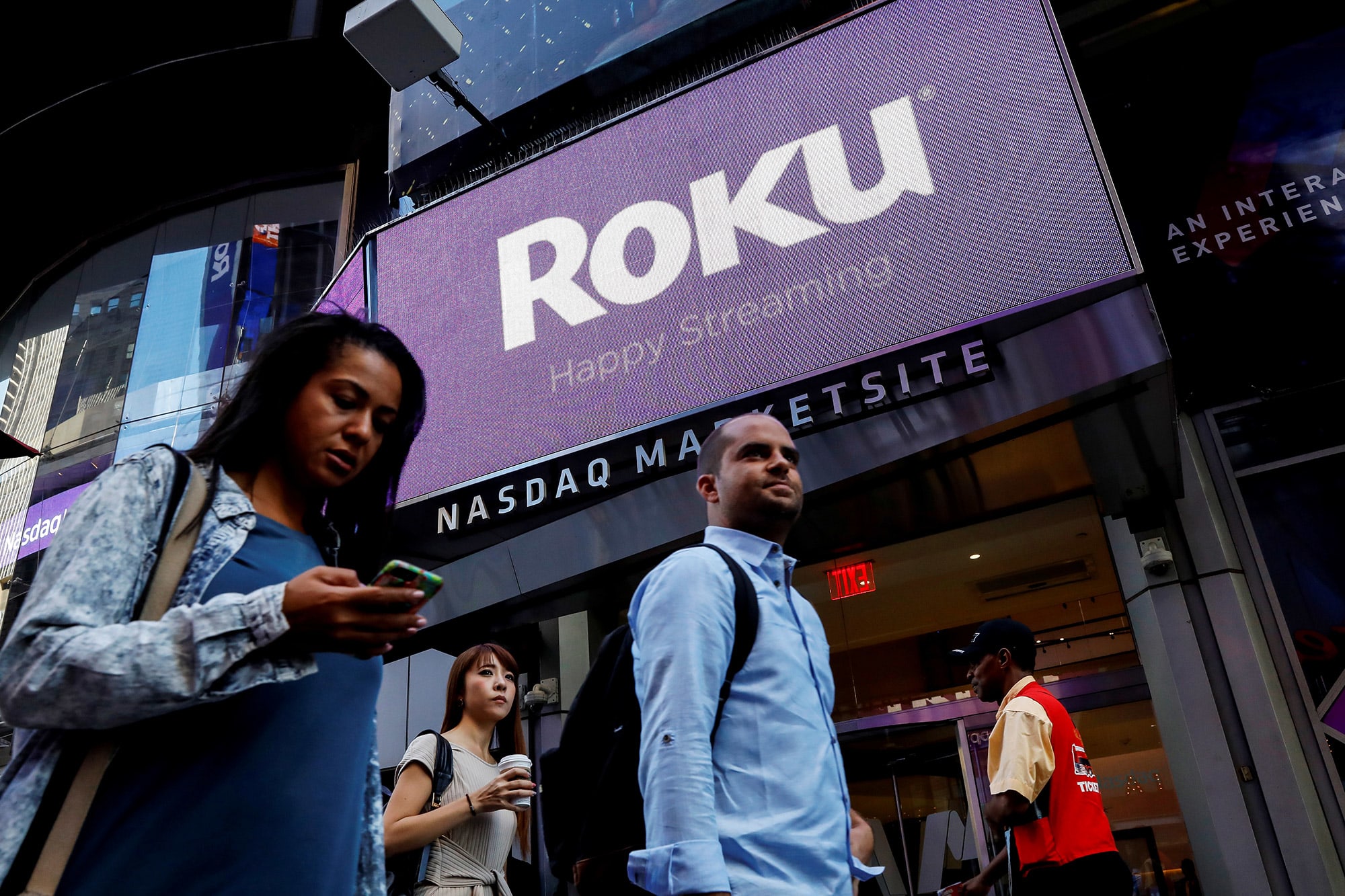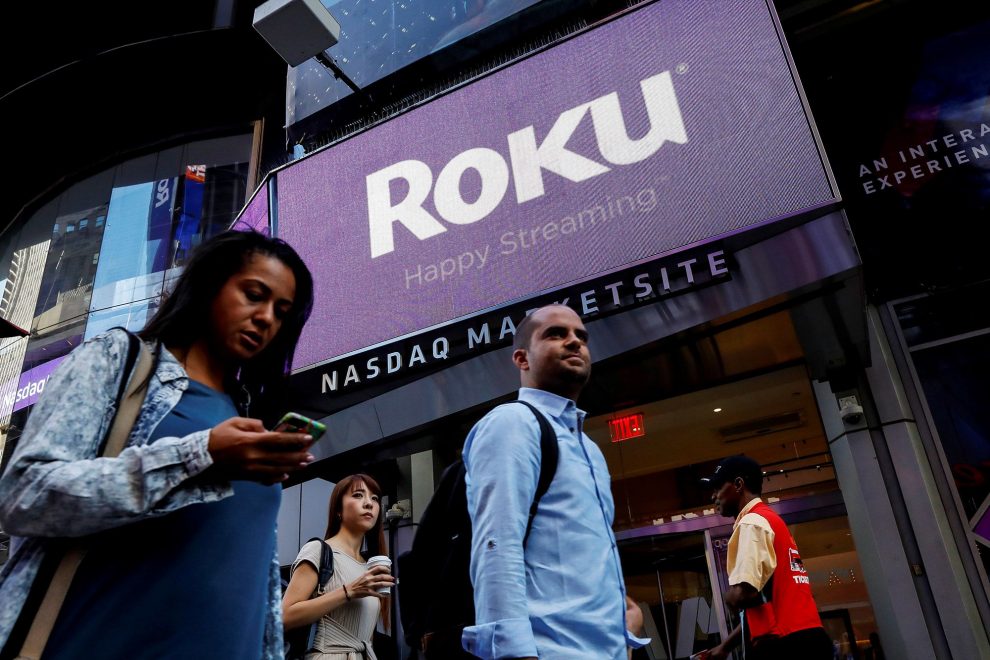
People pass by a video sign display with the logo for Roku, a Fox-backed video streaming firm, that held it’s IPO at the Nasdaq Marketsite in New York, September 28, 2017.
Brendan McDermid | Reuters
Streaming platform Roku attributed an acceleration in its total revenue growth primarily to growth in advertising as the platform’s monetized video ad impressions more than doubled year-over-year.
Roku shares were up more than 12% in after-hours trading on Wednesday. The company beat estimates, seeing a loss per share of 8 cents on revenue of $250 million. Analysts had expected a loss per share of 22 cents on revenue of $224 million, according to Refinitiv.
The company said its active accounts passed 30 million and average revenue per user reached $21.06, up $2.00 from Q1 2019. Total revenue growth accelerated to 59% year-over-year, the company said.
Roku believes it will benefit from the onslaught of upcoming launches of over-the-top streaming video services. Companies including Disney and NBCUniversal are rolling out new services to better compete with Netflix.
“We are excited, to say the least, about the coming services into OTT and believe that we are an essential platform for these new services,” said Scott Rosenberg, senior vice president and general manager of Roku’s platform business, on the company’s earnings call.
“We have a whole array of audience development ad products and capabilities starting from when you’re setting your Roku up to ads in the home screen, featured placement in the channel store, email units, we recently launched a video ad unit that lets you drive a download off of a 30-second spot, and we continue to add new ad products like that that help our content partners build audience as they launch these services on the platform.”
Given increased scrutiny in the realm of personal data, analysts queried Roku leaders on whether that would have an impact on over-the-top spending.
“We of course take privacy very seriously as a company, but we have a first-party direct relationship with our consumers and it puts us in a unique position as a platform to both explain to consumers how their data is used and to control it,” Rosenberg said. “I would just contrast that against third party entities, intermediaries who don’t have that direct consumer relationship, who are going to be more challenged to articulate and justify the use of data.”












